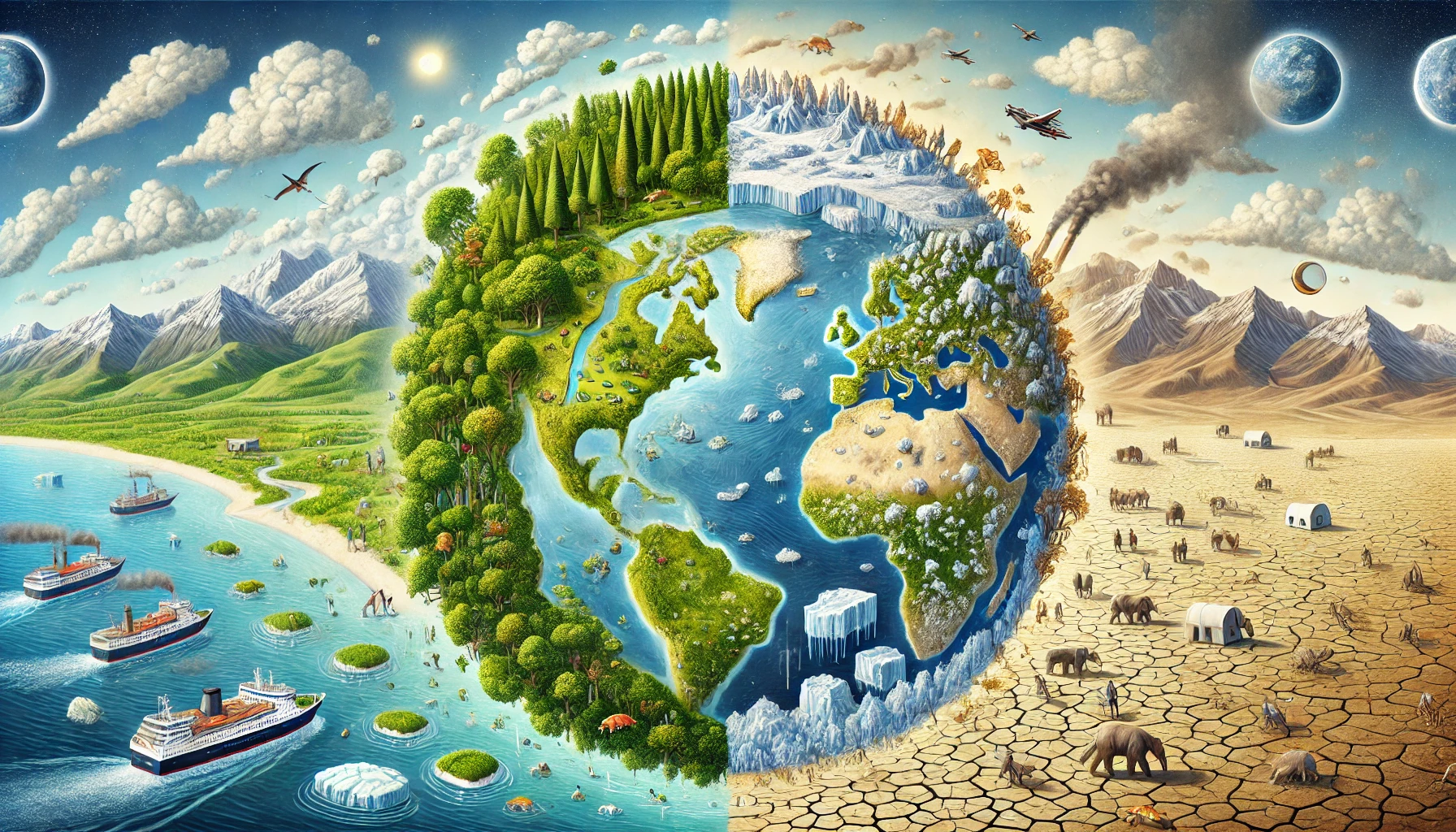Climate change has evolved from a distant concern to a pressing reality affecting every corner of the world. Defined by the gradual increase in global temperatures, erratic weather patterns, and shifting ecosystems, this phenomenon holds profound implications for our way of life. Our actions today will determine the resilience of the environment and human life in the years to come.
The Science Behind Climate Change
Human activities, primarily the burning of fossil fuels and deforestation, have intensified the release of greenhouse gases (GHGs) such as carbon dioxide (CO₂), methane (CH₄), and nitrous oxide (N₂O). According to the Intergovernmental Panel on Climate Change (IPCC), these gases trap heat in the atmosphere, leading to a gradual increase in global temperatures, often referred to as global warming. As a result, we’re witnessing unprecedented changes in climate patterns, with severe effects on ecosystems and biodiversity.
Consequences of Climate Change on Human Life
The impact of climate change is multifaceted, affecting health, economy, infrastructure, and even social stability.
- Health Risks: Rising temperatures have exacerbated heatwaves, which can lead to heat-related illnesses and deaths. The World Health Organization (WHO) reports that climate change also exacerbates the spread of infectious diseases, as warmer climates make certain regions more hospitable to disease vectors like mosquitoes.
- Food and Water Security: Agricultural productivity is at risk due to unpredictable rainfall, droughts, and flooding. The Food and Agriculture Organization (FAO) warns that these disruptions could lead to food shortages and higher prices, affecting especially vulnerable populations. Similarly, freshwater sources are under strain, threatening water security in many regions.
- Economic Impact: The economic costs of climate-related disasters—such as hurricanes, floods, and wildfires—are enormous. The World Bank estimates that climate change could push 132 million people into poverty by 2030, with low-income communities being disproportionately affected.
- Biodiversity Loss: Rising temperatures and habitat destruction lead to biodiversity loss, as species struggle to adapt to rapidly changing conditions. Coral reefs, for instance, are highly sensitive to temperature changes, and prolonged heat stress has led to widespread coral bleaching, impacting marine biodiversity and the livelihoods of coastal communities.
Steps Forward: A Call for Collective Action
To combat climate change, countries and individuals alike must commit to sustainable practices. Global initiatives like the Paris Agreement emphasize reducing GHG emissions and encouraging adaptation practices. Moreover, individuals can contribute by reducing waste, conserving energy, and supporting sustainable products.
The journey toward a stable climate is a collective responsibility. By understanding the impact of climate change on our lives and taking immediate action, we can pave the way for a sustainable future, where human progress and environmental stewardship go hand in hand.
References:
- IPCC. (2021). Climate Change 2021: The Physical Science Basis.
- World Health Organization. (2022). Climate change and health.
- Food and Agriculture Organization. (2022). The impact of climate change on food security.
- World Bank. (2021). Climate Change Action Plan 2021-2025.


